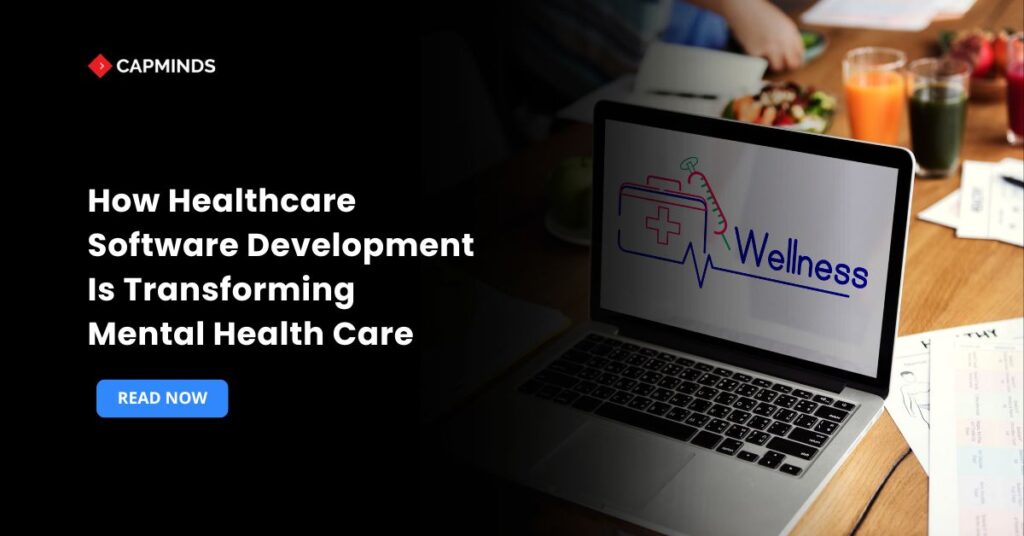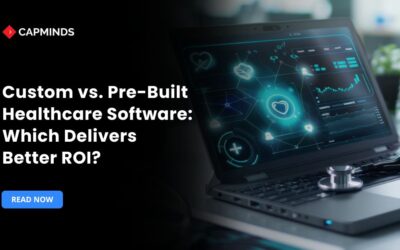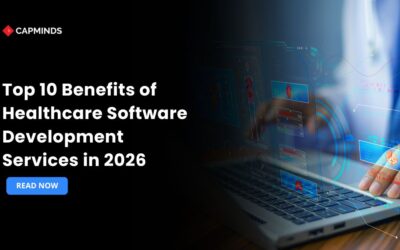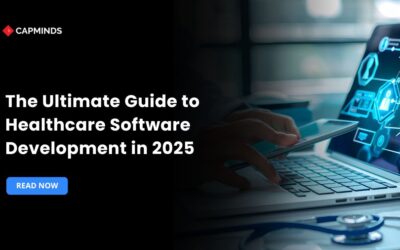How Healthcare Software Development Is Transforming Mental Health Care
The traditional mental health system is already strained to the extent of its capacity to meet the imminent lack of clinicians, the geographic considerations, and the widespread stigma of care.
The healthcare software development has become the critical catalyst where mental healthcare is being delivered, managed, and experienced with the advent of the digital revolution. The industry is dismantling the barriers and creating more personalized, efficient, and discreet care for millions of people by creating specialized digital tools that are specialized.
Why Mental Health Requires Specialized Software
Ancillary and primary care have different administrative and clinical requirements, and the general EHRs are frequently insufficient. Mental health EHR software is critical since it deals with the specialties of behavioral health settings, which are mostly focused on documentation and privacy.
Workflows should consider aspects like group therapy notes, treatment plans aimed at behavioral goals in the long run, and not an acute physical symptom, and stricter access control would be necessary.
As an example, a clinician may be required to secure some psychotherapy notes in a my-eyes-only mode, which is not often a priority in a general medical EHR.
Purpose-built behavioral health software designed to manage such needs is developed to meet high standards of privacy regulations, such as HIPAA and other laws in the world.
The program should be such that it facilitates patient confidence and confidentiality, which is most important in an area where transparency is the root of medicine. This change is part and parcel of the overall digital revolution of mental health.
Basic Characteristics of Mental Health Software
1. Tailored EHR Templates
Unlike generic medical charts, specialized mental health EHR software has templates of psychosocial assessment, standard tools of severity measurement such as PHQ-9 or GAD-7.
Evidence-based treatment plans, such as CBT or DBT, and customizable progress notes (e.g., SOAP or DAP), significantly lessen the documentation load on a clinician.
2. Integrated Teletherapy
Video conference possibilities are now considered a core business element that is seamless, secure, and safe. This element allows caregivers to provide services to patients who are living in distant places or who find the comfort and privacy of virtual sessions to be more convenient to access the care.
3. AI-Based Notes and Automation
The application of AI in the field of mental health care is evolving very fast. AI will be able to summarize session transcripts, auto-complete progress notes on the basis of key therapeutic concepts, and find key patient details to enable clinicians to redirect more significant time to therapeutic interaction than paperwork. This enhanced AI makes the documentation and billing easier.
4. Strong Patient Engagement Solutions
A secure patient portal has such features as secure messaging, automated appointment scheduling, and online self-assessment questionnaires.
It can significantly help to be more compliant with treatment and make the patients more active in their treatment process.
How Healthcare Software Development Enhances Mental Health Care
The real value of custom healthcare app development and platform creation is experienced in the fact that it provides the opportunity to integrate the parts of care that were previously isolated, thereby streamlining the whole ecosystem and making it more patient-centered.
1. Smooth Interoperability of Holistic Care
A client visiting a psychiatrist can also have a long-term physical illness, like diabetes or heart disease. The mental health EHR integration enables the behavioral health data to be shared with the primary care physicians and experts with high security and efficiency.
This interoperability will give a holistic picture of the patient, which helps in supporting integrated care models that treat the mind and the body.
The continuous flow of data has prevented diagnostic errors and it has avoided life-threatening drug interactions, and has a direct impact on the increased overall patient health outcomes.
2. Mobile Access and Remote Patient Monitoring
Mobile care takes the shape of custom healthcare app development, which is a game-changer in behavioral health.
The resources (mood trackers, journaling prompts, crisis hotlines, and psychoeducational resources) will be accessible to patients around the clock, in the form of HIPAA-compliant, secure mental health apps in the mobile application form.
Clinicians can also monitor patient information (sleep and activity patterns or self-reported mood swings) on a real-time basis through these apps.
This is how the ability to intervene on time and be proactive becomes possible, and, therefore, a minor setback can be prevented and transformed into a crisis.
3. Data Security as Fundamental Pillar
Psychiatric records are exceptionally sensitive; there should be no compromise in mental health data security.
The software development of today incorporates high-level encryption, multi-factor authentication, and strong access controls as measures to guarantee data integrity and compliance.
Granular permissions of sensitive therapy notes are a specialized control that is more than basic requirements to develop the trust required before patients can divulge their most confidential information.
Developers are also keen on developing a very secure environment where privacy is ensured, which gives the therapeutic relationship the required foundation.
Related: Top 10 Benefits of Healthcare Software Development Services in 2026
Emerging Trends in Mental Health 2026
1. Artificial Intelligence Predictive Analytics
The predictive models based on AI will process massive patient data to identify the early indicators of relapse or non-adherence to the therapy. These contributions enable practitioners to be active and provide more individualized care plans.
2. Chatbots and Generative AI Agents
AI chatbots will offer 24-hour-a-day emotional and cognitive assistance to mildly mentally challenged patients. They will expand access to care and make easy referral of the serious cases to the human professionals.
3. Comprehensive Interoperability Standards
The standards, such as FHIR, will be adopted into future systems so that real-time data sharing between the physical and behavioral health systems can be realized – the future of health records is a truly integrated health record.
4. Digital Therapeutics (DTx)
There will be more Software-as-a-Medical-Device (SaMD) apps, which are prescription-grade, evidence-based digital therapies such as PTSD and substance use disorder, all through smartphones.
FAQ
What are the latest security and privacy features ensuring patient confidentiality in mental health software?
Modern mental health EHR platforms employ strong encryption, multi-factor authentication, and granular access controls like “my-eyes-only” notes to ensure data privacy and comply with standards like HIPAA and GDPR.
How do integrated digital platforms promote holistic care for mental health and physical conditions?
Integrated platforms support real-time data exchange through standards like FHIR, enabling secure sharing between mental health and primary care providers. This promotes holistic, patient-centered care with a complete view of health needs.
Transform Your Practice with CapMinds’ Healthcare Software Development Services
At CapMinds, we empower mental and behavioral health organizations with next-generation healthcare software development services designed to deliver smarter, more connected, and patient-centered care.
Our solutions will bridge the gap between innovation and compliance, enabling practices to achieve superior results while fully complying with regulations.
We specialize in:
- Custom Healthcare Software Development Services – Tailored digital platforms that simplify clinical, billing, and patient engagement workflows.
- Behavioral Health EHR Services – Purpose-built systems with treatment-specific templates, progress notes, and analytics.
- Mental Health EHR Software Development – Secure, AI-enabled platforms that streamline documentation and enhance therapy outcomes.
- Interoperability & Data Integration – FHIR-based integrations for seamless data sharing across care networks.
Let CapMinds help you modernize your mental health services through powerful, compliant, and patient-focused technology.
Book a free consultation today to transform your digital health ecosystem.




